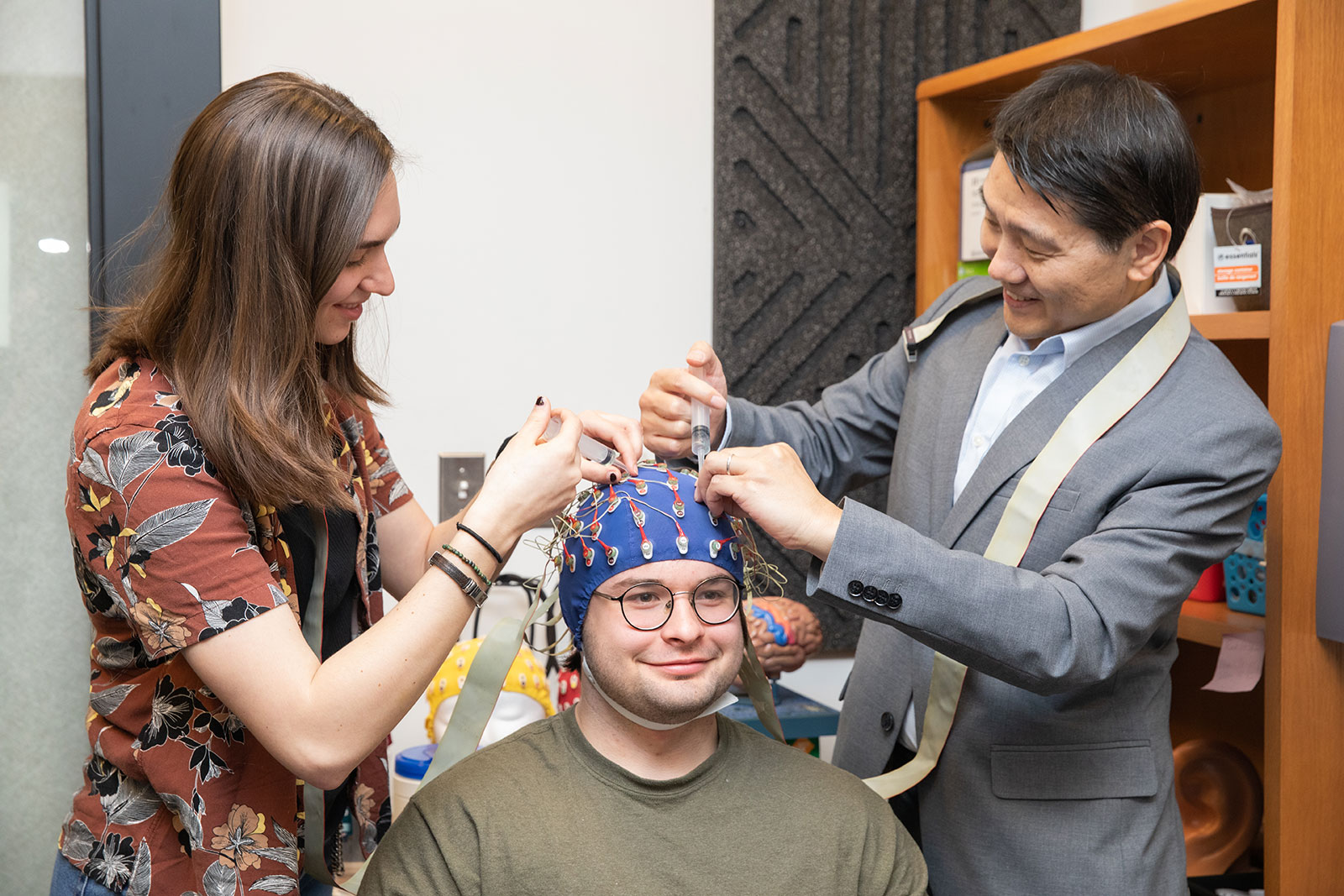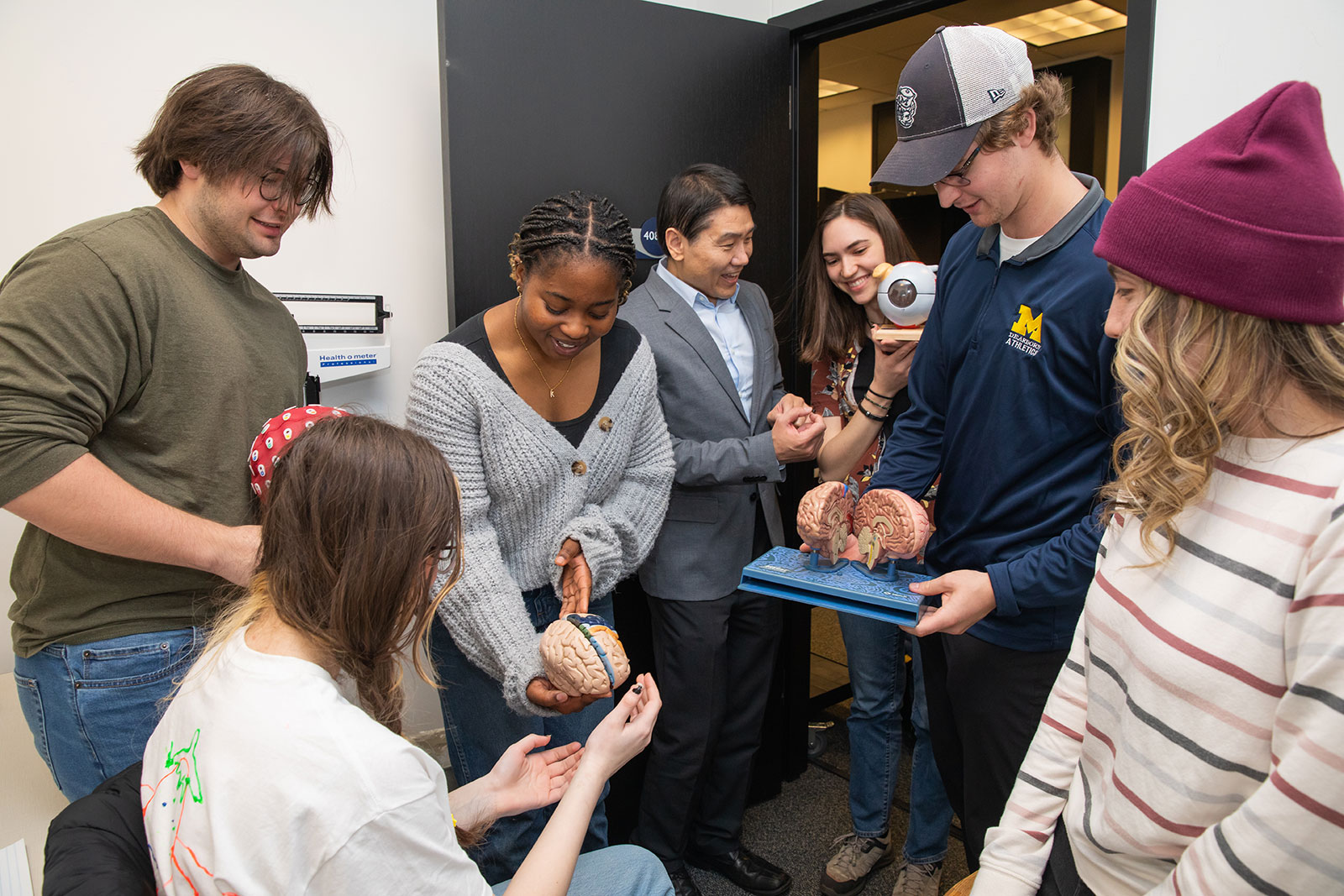Related Resources
Explore the Human Mind and Behavior
 Expand your understanding of the human condition from a multitude of perspectives as a psychology major at the University of Michigan-Dearborn. Your courses will explore a wide spectrum–from natural sciences such as biology and physiology to social science disciplines like anthropology and sociology–teaching you how to understand, predict, and modify behavior and psychological processes of individuals.
Expand your understanding of the human condition from a multitude of perspectives as a psychology major at the University of Michigan-Dearborn. Your courses will explore a wide spectrum–from natural sciences such as biology and physiology to social science disciplines like anthropology and sociology–teaching you how to understand, predict, and modify behavior and psychological processes of individuals.
You can take all of the courses for your psychology degree in person, online, or a combination of both.
Where Will a Psychology Degree Take Me?
A degree in psychology offers diverse career opportunities. Whether you envision a future in health and human services, government, business and industry, or academia and research, our curriculum will prepare you with the skills and knowledge you need. A psychology degree also is great preparation for careers in fields like medicine, law, business, education, and social work and for graduate studies, such as in our MS in clinical health psychology program at UM-Dearborn.

